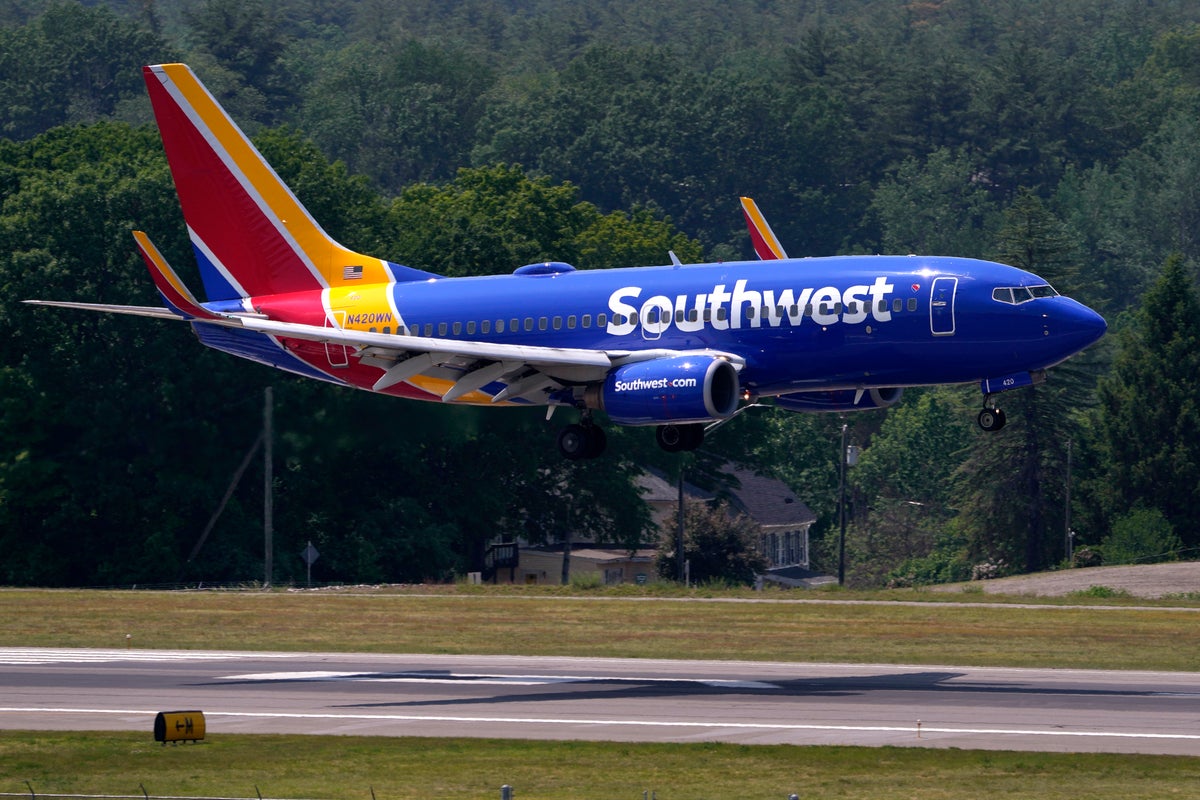
Support truly
independent journalism
Soda cans are rupturing on Southwest flights, in some cases injuring flight attendants, as extreme heat continues this summer.
According to CBS News, airline officials say they’re aware of a series of incidents involving carbonated drink cans rupturing mid-flight while being opened. So far this summer, the instances have resulted in 20 reported employee injuries.
Some of the employees had injuries to their hands. At least one needed to get stitches.
“We’re aware of this issue and have been taking steps to keep onboard beverages cooler, especially in our airports experiencing extreme temperatures,” a spokesperson for the airline said in an emailed statement to The Independent. “It’s a cross-functional effort between our airport teams and those in the air.”
Similar issues occurred last year but the new ones are creating more interest because they appear to be happening more frequently, the outlet reported. The airline reportedly said it is working to rectify the issue at its hotter locations, which include Austin, Dallas, Houston, Phoenix, Las Vegas and Sacramento.
A spokesperson told the outlet that it has been “communicating to our employees about it throughout the spring and summer,” adding that officials have developed a plane to address the issue.
It’s likely that the problem stems from how the airline stores and loads drinks on planes during extreme heat events. The airline does not stock perishables on board, and, as a result, does not use air-conditioned catering trucks to bring in drinks and meals
This leaves drinks more exposed to outside temperatures. The outlet obtained an email sent to flight attendants on July 12 titled “Hot & Bursting Cans: Provisioning Procedural Changes.” The email read, “viable solutions to bursting hot cans is our top priority.”
It was sent from Managing Director of Base Operations, Rachel Loudermilk to the airline’s 21,000-plus flight attendants. It stated that “none of us are satisfied that we are still seeing reported events.”
Some of the solutions the airline is exploring include stocking fewer cans on provision trucks, to limit the amount of time items spend in the heat, putting drinks in coolers on trucks, monitoring the temperature on trucks during shifts and “not boarding product when the outside temperature reaches levels known to elevate the risk of bursting cans,” CBS News reported.
Additionally, the airline has instructed employees not to open cans that are too hot or deformed as a result of heat exposure. The airline has also taken steps to determine the temperature of the cans. If they’re above 98 degrees, they will be returned to the warehouse.







